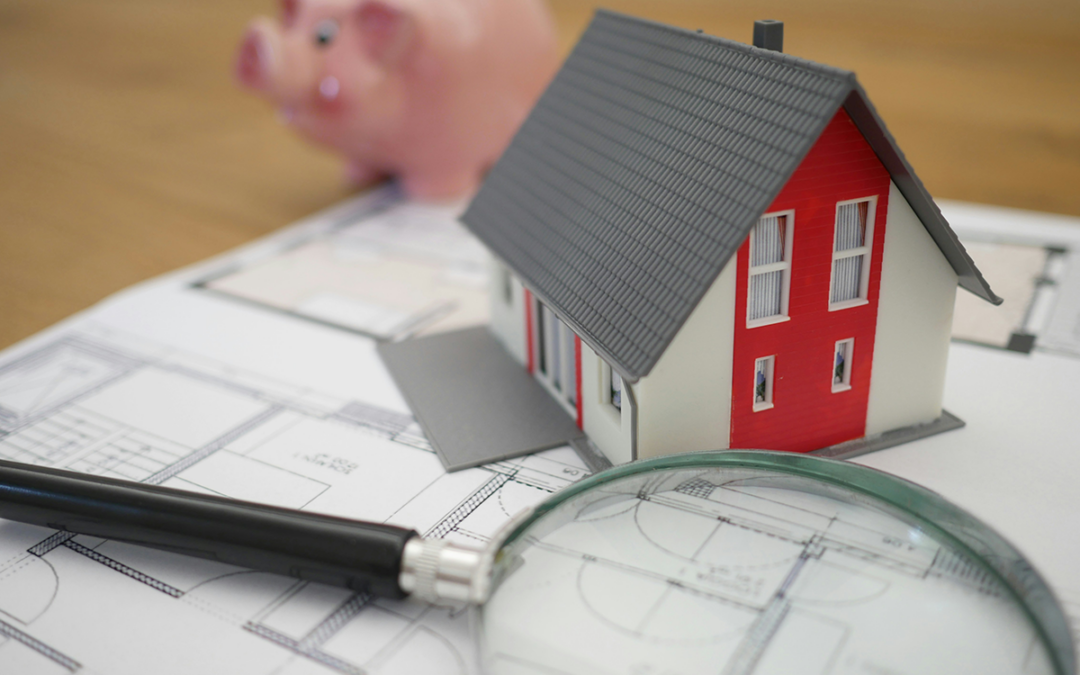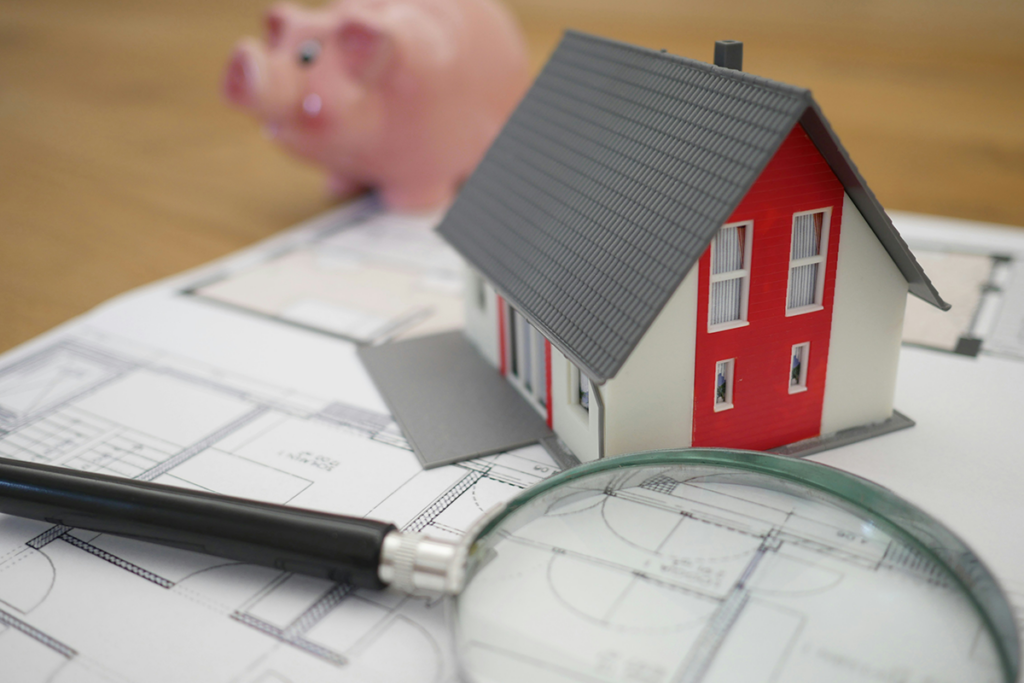
by Supreme Lending | Nov 10, 2024
Your Quick Home Appraisal Checklist

When buying or selling a home, it’s important to understand the importance of a home appraisal during the mortgage process. Appraisals determine the value of a property based on various factors, ensuring buyers, sellers, and lenders are aligned on what the home is worth. Knowing what appraisers look for can help ensure a smooth mortgage process and avoid last-minute surprises or delays. Read on for an overview of the appraisal process including a home appraisal checklist for homeowners, buyers, and real estate agents to consider.
What Is an Appraisal?
An appraisal is an independent assessment of a property’s market value led by a licensed appraiser. The value is based on evaluating several aspects of the home, such as the condition, location, and recent sales of comparable properties in the area. The appraisal is an essential step of the mortgage process required by most lenders to verify that they’re not lending more than the home is worth. For buyers, a home appraisal can also offer reassurance that they are paying a fair price.
The Home Appraisal Checklist: What Appraisers Look For
Here’s a quick look at some key elements appraisers may consider when evaluating a property. You can use this guide when searching for a home or preparing to sell.
1. Home Size and Layout
- What is the total square footage and number of bedrooms and bathrooms?
- Is the layout of the rooms and spaces functional.
- Is there a finished basement or attic that adds to the livable space?
2. Exterior Condition
- Roof: Are there any missing shingles, leaks, wear and tear, etc.?
- Foundation: Are there visible cracks or settling issues?
- Siding, windows, and doors: Check for any damage, peeling paint, or outdated fixtures.
- Landscaping: Is it overgrown or neglected?
3. Interior Condition
- Walls, ceilings, and floors: Are there any cracks, stains, or general wear and tear?
- Kitchens and bathrooms: Is there any damage, outdated appliances, or broken equipment? Are there luxury upgrades that may boost the home’s value?
- Plumbing and electrical: Are the systems up-to-code, functional, and safe?
4. Lot Size and Usability
- How large is the lot?
- Is it safe and functional?
5. Upgrades and Amenities
- Are there any recent home improvements, such as a kitchen remodel, energy-efficient updates, or a new roof?
- Are there unique amenities such as a pool, outdoor kitchen, or wine cellar?
6. Safety and Compliance
- Appraisers will check for safety hazards or code violations.
- Factors like missing handrails, faulty wiring, or broken windows can negatively impact the appraisal.
7. Location & Neighborhood
- Appraisers will examine the property’s location, including proximity to schools, parks, shopping centers, and other amenities.
- Neighborhood conditions, crime rates, and overall desirability can also impact the value.
8. Comparable Sales (Comps)
- Appraisers will compare the home to the sales of similar properties in the neighborhood.
- Factors such as home size, condition, and location are considered to provide a rough benchmark.
Preparing a Home for an Appraisal: Tips for Sellers and Agents
Keeping the home appraisal checklist in mind, there are some measures that sellers or listing agents may consider to prepare for an appraisal and potentially maximize a home’s value.
- Make Minor Repairs As Needed. Fix any small but noticeable issues, such as leaky faucets, old paint, stained carpet, and broken hardware. Minor fixes may go a long way in improving a home’s appraisal value.
- Clean and Declutter. A clean, organized home allows the appraiser to focus on the property’s key features rather than clutter. This step can also enhance the home’s overall appearance.
- Highlight Recent Upgrades. If the home has undergone significant improvements, provide the appraiser with a list of updates, including the dates and cost of renovations.
- Provide Easy Access. Make sure that the appraiser can navigate to all areas of the home, including the basement, attic, and other outdoor structures.
Frequently Asked Questions About Appraisals
1. What is the difference between a home appraisal and a home inspection?
A home appraisal determines the market value of the property, which is essential for lenders to approve the loan amount. A home inspection, on the other hand, assesses the condition of the home and identifies any potential issues or repairs that may need to be addressed. While an appraisal focuses on value, an inspection focuses on the home’s livability.
2. What happens if the home appraises for less than the sale price?
If the appraisal comes in lower than the agreed-upon sale price, the buyer and seller may need to renegotiate. The buyer could request the seller to lower the price, or the buyer may need to pay the difference out of pocket.
3. Do you need an appraisal when refinancing?
Yes. When refinancing,* it’s essential to understand the home’s current market value, especially if you’re taking cash out of your home equity. The appraisal also plays a key role in determining the Loan-to-Value ratio, which can affect loan terms, interest rate, and whether private mortgage insurance may be required.
*By refinancing an existing loan, total finance charges may be higher over the life of the loan.
What’s Next?
A home appraisal is one of the most important steps in the mortgage process. Once the appraisal is complete, the report is submitted to the lender for review. The lender reviews the appraisal report to verify the property’s appraised value aligns with the loan amount. When all loan conditions are met, it’s smooth sailing to closing.
Whether buying, selling, or listing a home, understanding the home appraisal checklist can help make the mortgage process smooth and seamless.
For more information about mortgages and steps of the loan process, contact your local Supreme Lending team today!
Related articles:

by Supreme Lending | Nov 1, 2024

There are several important steps involved in the homebuying process, and an independent confirmation of the property’s value is a key step for mortgage approval. This evaluation is typically known as an appraisal. What is an appraisal, why is it done, and what else do you need to know about the appraisal process as a prospective homebuyer? Here are the basics.
What’s an Appraisal?
For those who have never been through the mortgage process before, an appraisal refers to an unbiased estimate of a home’s value. A professional appraiser evaluates the property to confirm its worth, which is then used to determine how much money can be loaned to the borrower through a mortgage.
In nearly all home purchases today, lenders require an appraisal before approving a loan. This is because they want to be confident that they’re not loaning more money than the property is worth, as this would put them at risk of loss if the borrower defaults on the loan.
Generally, appraisals are completed and filed within the jurisdiction in which the property is located. This is important to keep in mind if you’re considering a purchase in another city, county, or state, as different jurisdictions have different requirements and processes.
Why Are Appraisals Important?
As mentioned, appraisals play a vital role in the homebuying process as they provide an unbiased estimate of a property’s value. This number becomes incredibly important when negotiating a purchase price, as it can help confirm or refute the asking price set by the seller.
If you’re planning to obtain a mortgage to finance your home purchase, the appraisal value will also be used to determine how much funds you’re eligible to borrow. In some cases, the appraised value may be lower than the agreed-upon purchase price, meaning that the buyer would need to come up with the difference in cost.
Of course, it’s important to remember that appraisals may not always be 100% accurate. There is some subjectivity involved in the process, and different appraisers can sometimes come up with different values for the same property. That’s why it’s important for buyers to be aware of recent comparable sales in the area, as this can help them gauge whether or not an appraisal is fair.
What Do Appraisers Look for?
When an appraiser is assessing a property, they’ll be looking at several different things. Here’s a general list:
- Interior and exterior inspection: The appraiser will visit the property and conduct a thorough inspection, taking note of both the condition of the property and any features or amenities that may impact its value. This will cover both the interior and exterior of the property.
- Review of recent sales: The appraiser will also review recent sales of comparable properties in the area to get an idea of the current market value. These will be included in the appraisal report for review, along with a street map that shows the locations of those properties.
- Assessment of the property’s condition: The appraiser will also provide their opinion on the condition of the property, which can impact its value. Therefore, it’s important for sellers to make necessary repairs or improvements before putting their home on the market.
- Square footage calculation explained: Assessing square footage is another essential part of the appraisal process. The appraiser will determine the total square footage of the property as well as the livable space. This can sometimes be tricky, as there are different ways to measure square footage and some methods may result in a larger number than others. For this reason, appraisers are generally required to also include the method they used in determining the home’s square footage on the report.
- Photos: One of the most important parts of the appraisal report is the photos that the appraiser takes during their inspection. These provide a visual record of the property’s condition and can be helpful when reviewing the report.
The appraiser’s findings are presented in reports that typically are several pages and include other important information, such as the appraiser’s qualifications, contact information, and any licenses or certifications they may have.
Who Pays for Appraisal Costs?
Generally speaking, appraisals can run between $300-$700 for single-family homes, though the exact cost will depend on the appraiser and the property being assessed. In most cases, the buyer is responsible for covering the cost of the appraisal, though there are some instances where the seller may agree to pay. Homebuyers may have the option to roll the appraisal cost into their closing costs or possibly the mortgage itself.
For more information on the appraisal process, or to learn more about any of our mortgage products and services, contact your local Supreme Lending team today.
Related Articles:
by Supreme Lending | Jul 29, 2024

If you’re thinking of buying a home, you may want to consider the possibility of seller concessions to help reduce upfront loan expenses. Imagine having a portion of your mortgage closing costs covered or even getting some essential home repairs taken care of without having to dig into your savings. That’s where seller concessions come in, also known as seller assistance. It can be a significant benefit for both buyers and sellers. In this guide, we’ll explore what seller concessions are, seller assist limits, and frequently asked questions.
What Are Seller Concessions?
Seller concessions are contributions paid by the seller that go toward the homebuyer’s closing costs. These can include closing fees, prepaid expenses, or even home repairs or improvements. These concessions can help lower the amount of money a buyer needs to bring to the closing table, making the home purchase more affordable.
The concession amount can be expressed as a percentage of the home’s purchase price or fixed dollar amount.
Examples of What Seller Concessions Can Cover
Seller concessions can be used for a variety of mortgage and homebuying costs including:
- Loan Origination Fees. Fees charged by the lender for processing the loan application.
- Appraisal Fees. This is the cost of having a home appraised.
- Home Inspection Fees. This is the cost of having a home inspected before closing.
- Property Taxes. Prepaid property taxes may be included in closing.
- Title Insurance. This insurance protects the buyer and lender from potential disputes over ownership.
- Discount Points. Also known as mortgage points, these help pay down the interest rate using upfront costs.
- Home Repairs or Improvements. Costs for necessary repairs identified during the home inspection or agreed-upon improvements before the sale.
How Do They Work?
- Negotiation. Seller concessions are typically negotiated as part of the buyer’s and seller’s purchase agreement. This request can be made with help from a real estate agent.
- Agreement. If the seller agrees to concessions, the specific details are outlined in the contract and must not exceed a specified limit depending on the loan type.
- Appraisal. The agreed-upon concessions cannot inflate the property’s value. Lenders require an appraisal to ensure the property’s market value supports the loan amount, including the concessions.
- Loan Approval. The lender will review the agreement and appraisal. This will ensure that the concessions align with the mortgage program’s guidelines.
- Closing. When the loan is ready to close, the costs are applied to the buyer’s closing costs or other agreed-upon expenses.
Who Benefits from Seller Concessions?
Both the buyers and sellers can benefit!
- Buyers. Concessions can lower the upfront costs needed to buy the home, making it easier to afford the property.
- Sellers. Offering concessions can also make the home more attractive for potential buyers, helping sell the home quicker.
Seller Assistance Limits
Limits on how much a seller can contribute vary depending on the loan type and down payment:
Conventional Loans
- Primary residence and second homes:
- 3% maximum with less than 10% down
- 6% maximum with 10-25% down
- 9% maximum with more than 25% down
- Investment properties:
- 2% maximum regardless of down payment
FHA/USDA Loans
- 6% maximum toward closing costs and prepaid items
VA Loans
- 4% maximum toward prepaid items
- No limit for closing costs or reasonable discount points
Frequently Asked Questions
Can the seller cover the entire down payment?
No. Seller concessions cannot be used for the full down payment. They are typically used for closing costs, prepaid expenses, and other associated fees, while meeting the loan guideline limits.
Does seller assistance affect the loan approval process?
Seller concessions themselves do not affect loan approval, but lenders can consider the impact on the Loan-to-Value (LTV) ratio and may require specific guidelines.
How does it impact the home appraisal?
The home’s appraisal must support the purchase price, including any seller contributions. If the appraised value is lower than the agreed-upon price, the lender may require adjustments.
Can a buyer negotiate for concessions?
Yes! Homebuyers can request this during negotiations. It’s essential to work with a knowledgeable real estate agent to help navigate the process.
How do seller concessions benefit first-time homebuyers?
First-time buyers often benefit from this as they may have limited funds for closing costs and other expenses. Seller assistance is another great way for more people to unlock the door to homeownership!
If you’re ready to start your homebuying journey, your local Supreme Lending team is ready to help! Contact us to learn about your mortgage options and get pre-qualified today.





